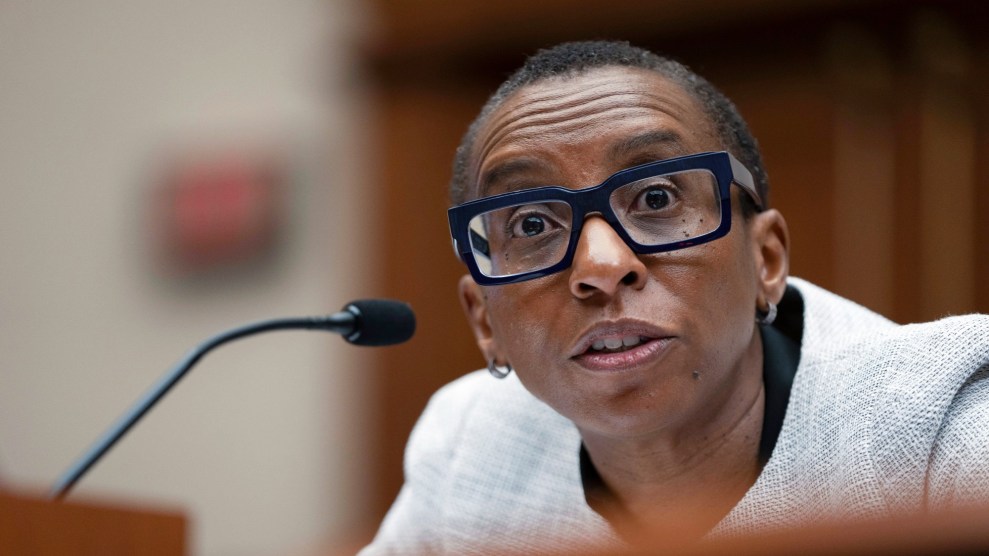
Mark Schiefelbein/AP
Harvard’s embattled President Claudine Gay isn’t going anywhere. On Tuesday morning, the Harvard Corporation, the university’s highest governing body, expressed its full support for Gay following a week of outrage over her congressional testimony on campus antisemitism.
“As members of the Harvard Corporation, we today reaffirm our support for President Gay’s continued leadership of Harvard University,” a statement from the board read. “Our extensive deliberations affirm our confidence that President Gay is the right leader to help our community heal and to address the very serious societal issues we are facing.”
The statement criticized Gay’s initial response to Hamas’ October 7 attack on Israel, saying that it should have been “immediate, direct, and unequivocal” in its condemnation of Hamas. But the board recognized Gay’s apology and commitment to combatting rising antisemitism on college campuses, voicing unanimous support for her leadership. Addressing allegations questioning the accuracy of Gay’s scholarship, which recently came under attack by far-right activist Christopher Rufo, the board said that an independent inquiry “found no violation of Harvard’s standards for research misconduct.” It noted, however, that Gay was proactively requesting corrections in two articles “to insert citations and quotation marks that were omitted from the original publications.”
This decision to back Gay brings an end to a two-month-long campaign to oust Harvard’s first Black president over her handling of the university’s response to campus protests. Demands to remove Gay came to a head at last week’s Republican-led congressional hearing on campus antisemitism, where Rep. Elise Stefanik (R-NY) asked Gay if students “calling for the genocide of Jews” violated Harvard’s harassment policies. “It can be, depending on the context,” Gay replied, adding that “antisemitic rhetoric, when it crosses into conduct that amounts to bullying, harassment, intimidation” qualified as conduct to take action against. The response, which some saw as evasive, provoked instant outrage from university donors, Jewish student groups, and even the White House, leading Gay to apologize in the Harvard Crimson.
But the apology did little to quell the anger in Congress, where over 70 lawmakers led by Stefanik, a Harvard graduate, called for the resignations of Gay and the other university presidents who appeared before Congress in last week’s hearing, including University of Pennsylvania President Liz Magill, who resigned Saturday amid the turmoil.
In the week since her congressional testimony, Gay received support from more than 700 Harvard faculty members and a coalition of Black faculty who urged administrators to resist calls for her removal. The Alumni Association Executive Committee weighed in as well with a letter signed by over 1,000 alumni expressing confidence in Gay’s ability to “address antisemitism, and other forms of hate, effectively and courageously.”
Her supporters ultimately won; the board unanimously endorsed her leadership. But the battle over free speech, as Israel’s assault on Gaza reaches cataclysmic proportions, is all but certain to continue on college campuses throughout the country.
















